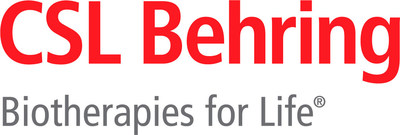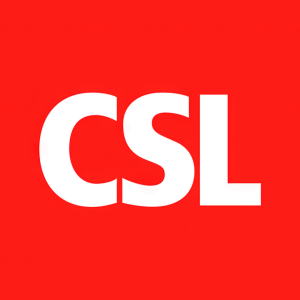EMA Grants Accelerated Assessment for CSL Behring's Haemophilia B Gene Therapy
Rhea-AI Summary
On December 15, 2021, CSL Behring announced that the European Medicines Agency (EMA) approved an accelerated assessment for its investigational gene therapy, etranacogene dezaparvovec, intended for treating hemophilia B. This therapy, currently in the Phase 3 HOPE-B clinical trial, aims to provide a long-term solution for patients suffering from a life-threatening bleeding disorder. The EU application is expected to be submitted in H1 2022, following positive results from the HOPE-B trial, including achieving primary and secondary endpoints related to bleeding rate reduction.
Positive
- EMA's approval for accelerated assessment could expedite patient access to etranacogene dezaparvovec.
- Positive results from the HOPE-B trial show the therapy reduces the annualized bleeding rate significantly.
- Etranacogene dezaparvovec was well-tolerated, with over 80% of adverse events classified as mild.
- Therapy could address unmet needs in hemophilia B treatment, potentially improving the quality of life for patients.
Negative
- None.
Insights
Analyzing...
MARBURG, Germany, Dec. 15, 2021 /PRNewswire/ -- CSL Behring today announced that the European Medicines Agency (EMA) has granted its approval for an accelerated assessment request for etranacogene dezaparvovec Marketing Authorisation Application (MAA). Etranacogene dezaparvovec is an investigational gene therapy for people with haemophilia B, a life-threatening bleeding disorder, and is currently being studied in the Phase 3 HOPE-B clinical trial.

The EMA grants accelerated assessment if a medicinal product is expected to be of major public health interest and constitutes a therapeutic innovation. This potentially reduces the assessment timeline, once the MAA is filed and validated and could speed up patient access to this gene therapy.
Etranacogene dezaparvovec has already been granted Breakthrough Therapy Designation by the United States Food and Drug Administration and access to the Priority Medicine (PRIME) regulatory scheme by the EMA. CSL Behring plans to submit regulatory applications for marketing approval of etranacogene dezaparvovec in the European Union and the United States in the first half of 2022.
CSL Behring recently announced positive top line results from the HOPE-B pivotal trial of etranacogene dezaparvovec. The study achieved its primary endpoint of non-inferiority in annualized bleeding rate after stable Factor IX (FIX) expression, assessed at 18 months following a single dose. It also achieved a secondary endpoint demonstrating statistical superiority in reduction of annualised bleeding rate, compared with baseline FIX prophylactic therapy. Factor IX is a naturally occurring protein produced in the body, which helps blood to clot.
The study further showed that Etranacogene dezaparvovec was generally well-tolerated with over
"These encouraging results illustrate the potential that gene therapy has to be a long-term treatment option for patients living with haemophilia B and we look forward to sharing more detailed data with the medical community in the near future," commented Lutz Bonacker Senior Vice President and General Manager Europe at CSL Behring. "This milestone advances our efforts towards expected regulatory submissions in the first half of 2022."
"The acceptance of an accelerated regulatory review underscores the high unmet need for a long-term treatment option for haemophilia B patients," said Karen Pinachyan, Head of Medical Affairs Europe at CSL Behring. He added: "For people living with haemophilia B, gene therapy has the potential to make near-normal blood clotting ability possible, which could be life changing for patients vulnerable to spontaneous bleeding in their muscles, internal organs and joints."
"Consistent stable Factor IX expression, observed at 6 months, 12 months and now the 18-month final analysis of the HOPE-B pivotal trial, is preparing the ground for future approvals and implementation in clinical practice," commented Prof Wolfgang Miesbach from the University Hospital of Frankfurt, Germany, and HOPE-B trial investigator. He added: "It would be essential that a collaborative effort between all stakeholders is made to bring this innovation to patients."
About Hemophilia B
Hemophilia B is a life-threatening degenerative disease. People with the condition are particularly vulnerable to bleeds in their muscles, internal organs, and joints, leading to pain, swelling, and joint damage. Current treatment includes life-long prophylactic infusions of FIX to temporarily replace or supplement low levels of the blood-clotting factor. This can reduce joint bleeding events, prevent life-threatening bleeds, and preserve joint function. However, infusions can be cumbersome, painful and veins can fibrose over time, making ongoing treatment difficult. A person's immune system may also generate inhibitors against the replacement factor, negating its benefit. In addition, many people receiving prophylaxis are forced to plan their lives around the highs and lows of their FIX levels, which rise immediately after an infusion but drop over time -- leaving them especially vulnerable to bleeds and pain in the days before their next infusion. Most troubling, prophylactic FIX replacement therapy sometimes fails to control unobservable micro-bleeds in the joints, meaning that the degeneration can continue despite regular infusions. Missing an infusion may also the increase their likelihood of a life-threatening bleed or even premature death.
About Gene Therapy in Hemophilia B
Gene therapy has the potential to make a functional cure possible in hemophilia B. Gene therapy achieves this with modified non-infectious viruses called "vectors" that can enter certain cells. Vectors act as delivery trucks, carrying a package of genetic instructions to specific cells. Once delivered, the package acts like a generator that plugs into the cellular machinery, allowing a person to produce their own stable levels of FIX. A certain type of vector, called an adeno-associated virus, or AAV, dissolves after delivering its package. The genetic instructions remain, but never actually become a part of a person's own DNA.
About Etranacogene Dezaparvovec
Etranacogene dezaparvovec (also known as CSL222 and EtranaDez was previously known as AMT-061) uses a specific type of AAV, called AAV5, as its delivery vehicle. The AAV5 vector carries the patent-protected Padua gene variant of Factor IX (FIX-Padua), which generates FIX proteins that are 5x-8x more active than normal. Preclinical and clinical data show that AAV5-based gene therapies may be clinically effective in up to 95 percent of hemophilia B patients with pre-existing antibodies to AAV vectors, thereby potentially increasing patient eligibility for treatment compared to other AAV gene therapy product candidates.
About CSL Behring
CSL Behring is a global biotherapeutics leader driven by our promise to save lives. Focused on serving patients' needs by using the latest technologies, we discover, develop and deliver innovative therapies for people living with conditions in the immunology, haematology, cardiovascular and metabolic, respiratory, and transplant therapeutic areas. We use three strategic scientific platforms of plasma fractionation, recombinant protein technology, and cell and gene therapy to support continued innovation and continually refine ways in which products can address unmet medical needs and help patients lead full lives.
CSL Behring operates one of the world's largest plasma collection networks, CSL Plasma. The parent company, CSL Limited (ASX:CSL;USOTC:CSLLY), headquartered in Melbourne, Australia, employs more than 25,000 people worldwide, and delivers its life-saving therapies to people in more than 100 countries. For inspiring stories about the promise of biotechnology, visit Vita CSLBehring.com/vita and follow us on Twitter.com/CSLBehring.
Media Contact:
Faraz Kermani
Faraz.Kermani@CSLBehring.com
Mobile: +49 (171) 9439569
![]() View original content:https://www.prnewswire.com/news-releases/ema-grants-accelerated-assessment-for-csl-behrings-haemophilia-b-gene-therapy-301445225.html
View original content:https://www.prnewswire.com/news-releases/ema-grants-accelerated-assessment-for-csl-behrings-haemophilia-b-gene-therapy-301445225.html
SOURCE CSL Behring






